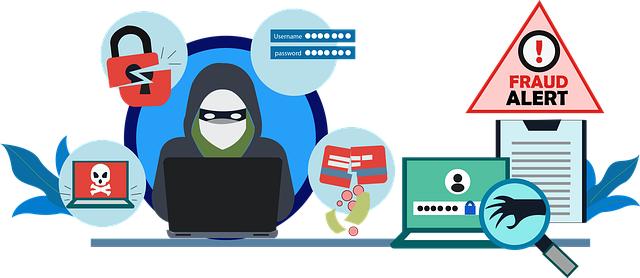- Introduction
- Understanding Gift Card Scams
- Types of Gift Card Scams
- How to Protect Yourself
- Reporting a Scam
- Conclusion
- FAQs
Introduction
The digital marketplace has grown extensively, presenting numerous opportunities for consumers. However, along with these opportunities, there has been a disturbing increase in gift card scams in 2024. This article will delve into the nature of these scams, explore various types that are prevalent today, guide you on how to protect yourself from becoming a victim, explain how to report suspicious activities, and wrap up with some final thoughts on navigating this evolving challenge.
Understanding Gift Card Scams

(Image: Pixabay/@bytrangle)
Gift card scams involve fraudsters tricking individuals into buying gift cards and providing them with the card numbers and PINs. Unlike credit or debit card transactions, once the scammer receives the information, the money is virtually unrecoverable. It’s important to understand the mechanics behind these scams to better defend against them.
The internet's anonymity allows scammers to pose as trustworthy figures—be it tech support, a loved one, or even a well-known company. Understanding their tactics to persuade victims into sharing gift card details can make all the difference. Education and awareness are potent tools in combating these schemes.
In 2024, the Federal Trade Commission (FTC) reported that gift card scams have become the second most common form of fraud, necessitating consumer vigilance. This highlights how crucial it is for everyone to take precautions and recognize potential warning signs when approaching gift transactions.
Staying informed about how these scams operate and spreading awareness among friends and family will significantly reduce the likelihood of someone falling victim. The next section will address the various types of gift card scams making the rounds this year.
Types of Gift Card Scams

(Image: Pixabay/@geralt)
As technology advances, so do the strategies employed by scammers. Here are several prevalent types of gift card scams that emerged in 2024:
1. The Tech Support Scam: This scam feels particularly intrusive. Victims receive a call from someone pretending to be from a legitimate tech support service, claiming that the victim’s device is compromised. To ‘fix’ the supposed issue, they demand payment through gift cards. Unsuspecting individuals rush to comply, making this one of the most devastating scams.
2. Impersonation Scams: Scammers often impersonate family members or trusted figures like bosses or coworkers via email or social media. They may fabricate an emergency plea that requires urgent financial help, urging the victim to buy gift cards. This emotional manipulation makes it easier to deceive those not anticipating fraud.
3. Online Marketplace Scams: With the rise of online selling platforms, scammers may post fake listings for high-demand items—like concert tickets or electronics—requesting payment in gift cards. Once the funds are sent, the buyer discovers that the product was never real, leaving them out of pocket.
4. Prize or Sweepstakes Scams: Victims are informed they've won a contest they don't recall entering. To claim their prize, which often costs money instead of providing cash, they must send in a payment via gift cards. These scams prey on excitement and lure victims into uncertain circumstances.
Awareness of these techniques is essential, but understanding how to protect ourselves is paramount. Let’s move on to exploring ways to safeguard against these fraudulent endeavors.
How to Protect Yourself

(Image: Pixabay/@Mohamed_hassan)
There are essential steps anyone can take to mitigate the risks posed by gift card scams. Here are effective methods to ensure your safety:
1. Be Skeptical: If someone contacts you asking for help via gift cards, whether over the phone or online, approach the situation with caution. Trust your instincts; if something feels off, it likely is. Legitimate businesses will never ask for payment in gift cards.
2. Educate Yourself and Others: Stay informed about the latest scams circulating in your community. Share information with family and friends to create a community that is alert and engaged in preventing scam victimization.
3. Use Alternative Payment Methods: Encourage the usage of credit or debit cards for transactions, especially online. These payment methods offer protections that typically gift cards do not provide. Always prefer well-established online stores or known retailers when shopping.
4. Report Scams and Take Action: If you suspect that you’ve been targeted by a scam, report it immediately. By contacting local authorities and organizations like the FTC and Better Business Bureau, you help raise awareness and may prevent another person from falling victim.
While these protective strategies are crucial, the follow-up step is understanding how to report any encountered scams effectively. Let's look at the reporting process.
Reporting a Scam

(Image: Pixabay/@Mohamed_hassan)
Understanding how to report a scam isn't just about helping yourself; it’s about protecting others by shedding light on these wrongful practices:
1. Document Everything: When you suspect you've encountered a scam, document everything related to the interaction. This includes dates, times, names, and the content of conversations. Also, keep records of any transactions made.
2. Report to Authorities: Reporting scams to local law enforcement introduces oversight to these schemes. Furthermore, contacting agencies like the FTC and filing reports can lead to consequential investigations, sometimes bringing criminals to justice.
3. Notify Your Bank: If you've shared your financial information or conducted a transaction, notify your bank. They can help monitor your accounts for potential breaches and may offer advice on further actions you should take.
4. Spread the Word: Sharing your experience can prevent someone else from suffering the same fate. Social media platforms and community boards are excellent avenues for disseminating warnings regarding specific scam tactics.
With this knowledge, you’re equipped to confront attempts at fraud while also contributing to broader community awareness. As we wrap up our discussion, let’s reflect on some substantial conclusions surrounding gift card scams.
Conclusion
Gift card scams are unfortunately a growing concern in 2024, fueled by cunning tactics and advanced technologies designed to trick unsuspecting consumers. However, understanding scams, recognizing the various types, and implementing proactive safeguarding measures will empower individuals to navigate these treacherous waters effectively. Collectively sharing knowledge and experiences can fortify our defenses against these fraudulent tactics.
Preventing gift card scams takes a community effort, and we encourage everyone to stay informed and alert. With added vigilance, people can continue enjoying the ease and convenience of digital gift cards without falling prey to deceitful practices.
FAQs
What should I do if I fell victim to a gift card scam?
If you believe you have been scammed, document the details of the incident and immediately contact your bank and local authorities. Inform the FTC and report the scam on their website for proper tracking and investigations.
Can gift cards be traced once they are used?
Unfortunately, most gift cards cannot be traced once the number and PIN are redeemed, which is why it's crucial to treat your gift card details as you would cash.
Are there specific red flags that indicate a scam?
Yes, look out for high-pressure tactics, requests for payment in gift cards, unsolicited contact from strangers, or claims of prizes for which you didn't enter. Always be cautious if something seems too good to be true.
How can I educate my family about gift card scams?
Begin by discussing the types of scams that exist and share real-life examples. Encourage open conversations where family members feel comfortable asking questions or expressing concerns about suspicious communications they may receive.
Where can I find more information about gift card scams?
The FTC provides updated information and resources regarding ongoing scams. Local consumer protection agencies can also provide valuable insights and ways to protect oneself from scams.

